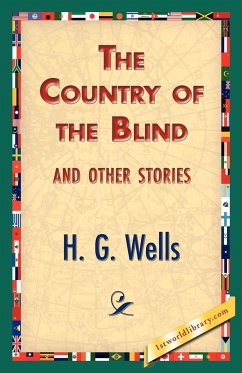
The Door in the Wall and Other Stories
Versandkostenfrei!
Versandfertig in über 4 Wochen
25,99 €
inkl. MwSt.
Weitere Ausgaben:

PAYBACK Punkte
13 °P sammeln!
One confidential evening, not three months ago, Lionel Wallace told methis story of the Door in the Wall. And at the time I thought that so far as he was concerned it was a true story. He told it me with such a direct simplicity of conviction that I could not do otherwise than believe in him. But in the mor-ning, in my own flat, I woke to a different atmosphere, and as I lay in bed and recalled the things he had told me, stripped of the glamour of his earnest slow voice, denuded of the focussed shaded table light, the shadowy atmosphere that wrapped about him and the pleasant bright things, th...
One confidential evening, not three months ago, Lionel Wallace told methis story of the Door in the Wall. And at the time I thought that so far as he was concerned it was a true story. He told it me with such a direct simplicity of conviction that I could not do otherwise than believe in him. But in the mor-ning, in my own flat, I woke to a different atmosphere, and as I lay in bed and recalled the things he had told me, stripped of the glamour of his earnest slow voice, denuded of the focussed shaded table light, the shadowy atmosphere that wrapped about him and the pleasant bright things, the dessert and glasses and napery of the dinner we had shared, making them for the time a bright little world quite cut off from every-day realities, I saw it all as frankly incredible. "He was mystifying!" I said, and then: "How well he did it!. . . . . It isn't quite the thing I should have expected him, of all people, to do well."













